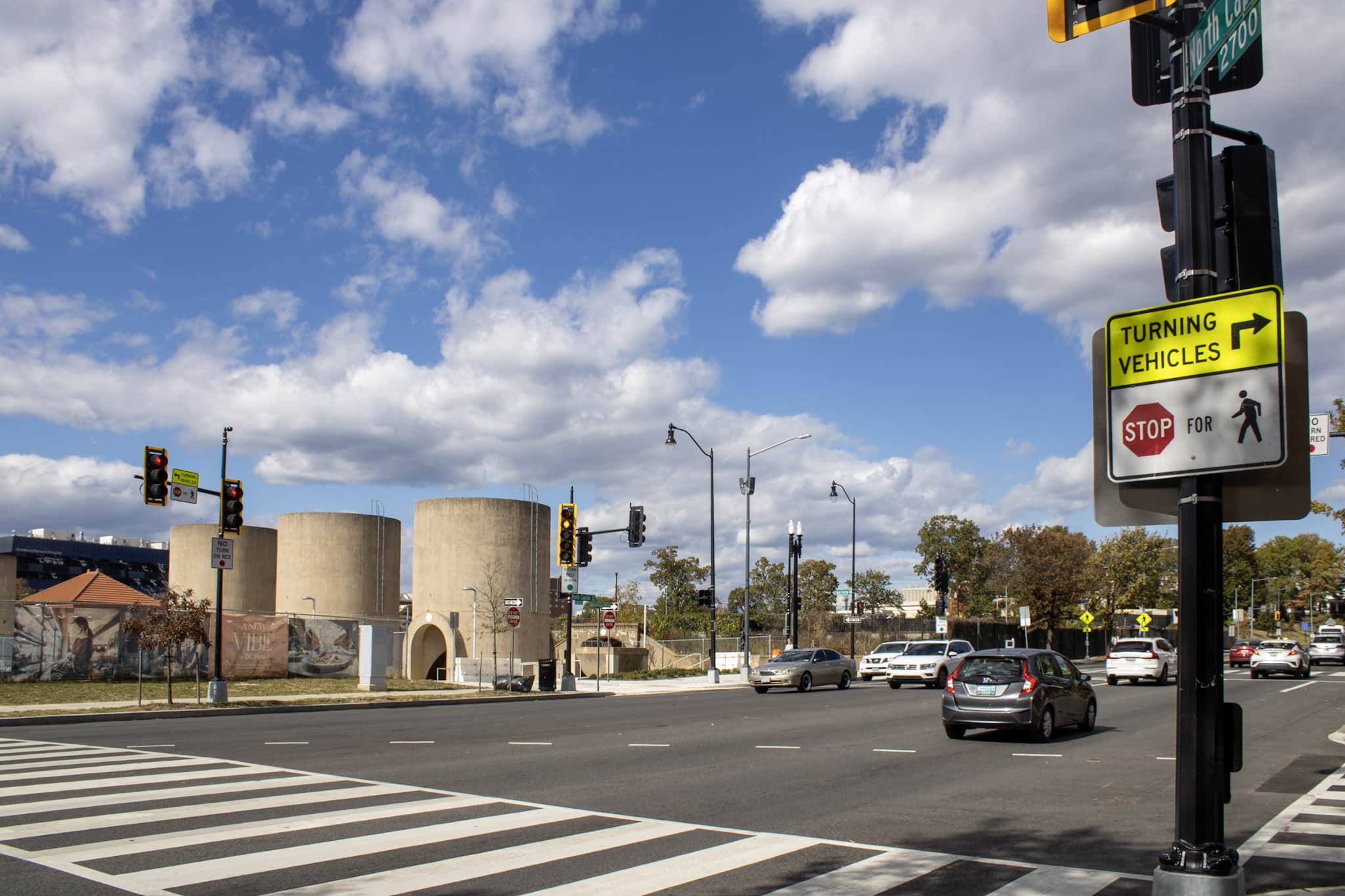
Arlington County Approves Vision Zero Action Plan
The Arlington County Board approved its Vision Zero Action Plan this past weekend. The plan’s adoption comes after two years of collaboration to identify how to commit to make Vision Zero a reality.
Vision Zero, as defined by the National Vision Zero Network, is “a strategy to eliminate all traffic fatalities and severe injuries while increasing safe, healthy, equitable mobility for all.” Vision Zero was first introduced in Sweden in 1995 and has been implemented in cities and countries worldwide since then. Arlington County joins more than 40 US jurisdictions committed to Vision Zero, including large cities like Washington, DC, and Los Angeles, as well as smaller jurisdictions like Alexandria, Virginia, and Eugene, Oregon.
Vision Zero challenges traditional transportation engineering practices by stating that traffic deaths are preventable, that human error must be factored into solutions, and that saving lives does not have to be expensive. While no two Vision Zero programs are exactly alike, they all share the core tenets of leadership and collaboration, data collection and analysis, emphasis on equity and engagement, commitment to accountability, and prioritization of safe roadways and speeds in all transportation planning and design.
Action items in the Arlington County plan are divided into four categories:
- Data & Evaluation aims to better collect, analyze and report information related to metrics of the Vision Zero program. The County starts by stating “Vision Zero is a data-driven program.” Data is a necessity to define and measure the success of the program.
- Process & Organization reflects the need for Vision Zero to span “all phases of a project or program from planning, design and construction to operations and maintenance.” The Vision Zero Action Plan lists specific objectives for each of the phases.
- Engagement will occur through Public Involvement and Education & Encouragement objectives. The County has committed to “broaden its outreach and communications efforts to create awareness of Vision Zero.”
- Partnerships are pivotal to the success of the program. Arlington County has identified the need for Interdepartmental Collaboration within the county, along with support of the Virginia Department of Transportation (VDOT), regional agencies, legislation, stakeholders, and service providers.
Arlington County’s Vision Zero Action Plan focuses on the next five years, intending to update the plan in 2025, and targets achieving zero transportation deaths and serious injuries by 2030. Part of the plan identifies that the timeline and details of the plan may change as progress is tracked. Arlington County will release an annual progress report to include program performance metrics, a summary of crash data, updates of action items, and next steps.
The design community, especially transportation professionals like Gorove Slade, plays a role in helping communities eliminate deaths and serious injuries on roadways. Transportation should not just be about moving people from one point to another but also about creating equitable and safe facilities for all travelers regardless of mode. To that end, we bring multimodal expertise to bear on projects large and small, helping evaluate pedestrian and bicycle facilities both on a site level and as part of larger networks. We also have extensive experience with local jurisdictions adopting Vision Zero programs, including the District of Columbia, Alexandria, Virginia, Montgomery County, Maryland, and now Arlington County, Virginia.
As a firm, Gorove Slade is enthusiastic about the role of transportation in advancing a safe, equitable, sustainable future. Now that the County has finalized its Action Plan, we’re ready to help our clients understand these changes and work towards projects serving both internal transportation needs and the County’s Vision Zero goals.
